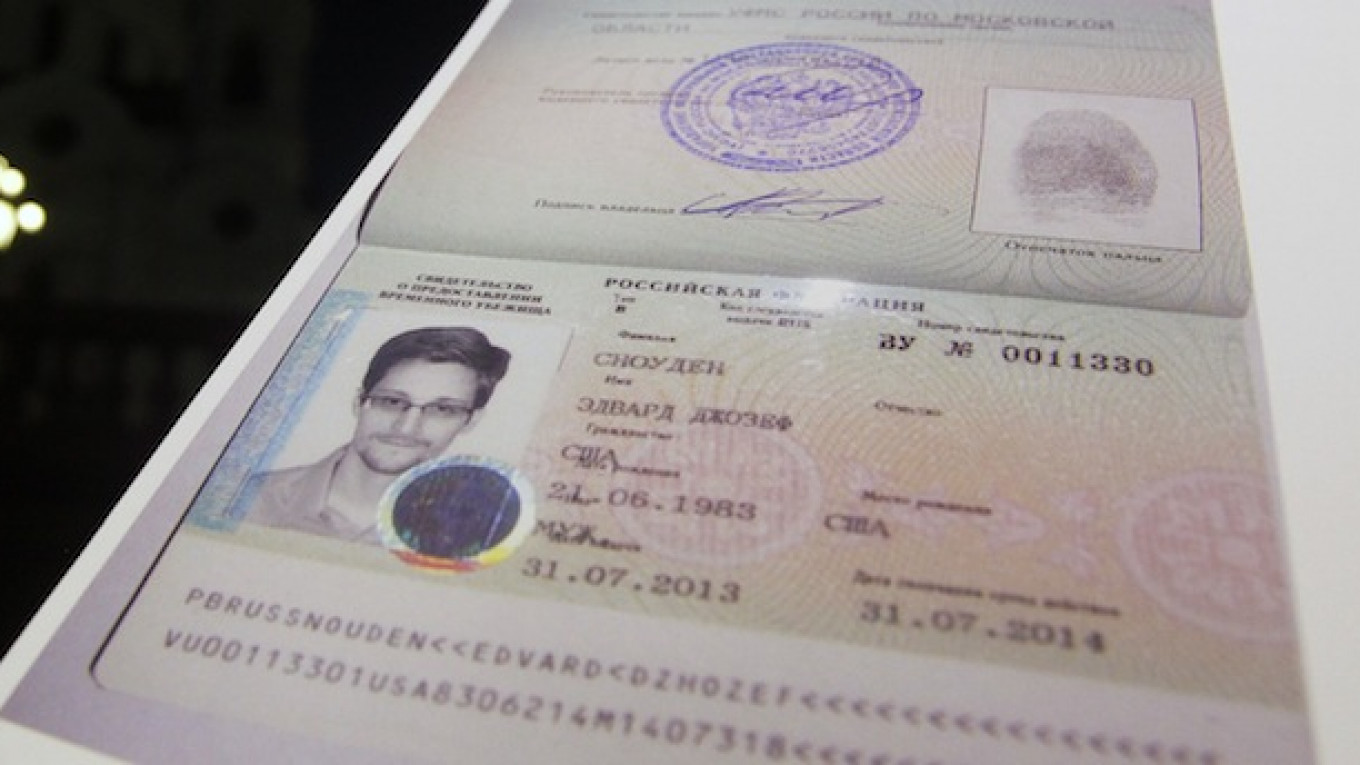Former U.S. intelligence contractor Edward Snowden, wanted by the United States for leaking extensive secrets of its electronic surveillance programs, has been given a three-year residence permit by Russia, his Russian lawyer said Thursday.
Moscow's relations with the West are at Cold War-era lows over Russia's actions in Ukraine. Russia banned certain food imports from the United States, the European Union, Australia, Canada and Norway on Thursday in response to Western sanctions.
"The decision on the application has been taken and therefore, with effect from Aug. 1, 2014, Edward Snowden has received a three-year residential permit," lawyer Anatoly Kucherena said. "In the future, Edward himself will take a decision on whether to stay on [in Russia] and get Russian citizenship or leave for the United States."
He said that Snowden could apply for citizenship in 2018 after living in Russia for five years, but that he had not decided whether he wanted to stay or leave.
The spokesman for the White House National Security Council, Ned Price, said Snowden needed to return to the United States to face charges related to the leaks.
"Mr. Snowden faces felony charges here in the United States.
He should return to the U.S. as soon as possible, where he will be accorded full due process and protections," Price said.
Kucherena said Snowden was studying Russian and had an IT-related job, but did not provide further details.
"He is a high-class IT specialist," Kucherena said.
He said that Snowden's security was being taken seriously and that he was using private security guards.
The tone of statements out of the United States, including out of the State Department, suggests his security was at risk, even in Russia, Kucherena said.
Kucherena has in the past expressed concerns that Snowden could be in danger because of his intelligence background and the fact that the United States wants him to stand trial.
"I should say that he can move freely. He can go to the shops, visit museums and theaters," he said.
But "he needs to think about his safety."
Snowden's place of residence has not been disclosed, and few pictures of him have appeared in the media.
Snowden's father, Lon Snowden, who visited him last October, said his son had more secrets to share and should stay in Russia "to make sure the true story is told."
"Of course, he misses them [his parents] greatly," Kucherena said. "The fact that he remains here, far away from his motherland, of course, was very difficult for him especially at the beginning."
Snowden fled to Hong Kong and then Moscow last year after leaking details of secret state surveillance programs.
He spent almost six weeks at Moscow's Sheremetevo Airport before Russia granted him asylum for a year on Aug. 1, 2013, creating a furore in the United States.
The leaks by Snowden, who is believed to have taken 1.7 million digital documents with him, revealed massive programs run by the U.S. National Security Agency (NSA) that gathered information on hundreds of millions of Americans' emails, phone calls and Internet use.
He was charged last year in the United States with theft of government property, unauthorized communication of national defense information and willful communication of classified intelligence to an unauthorized person.
See also:
A Message from The Moscow Times:
Dear readers,
We are facing unprecedented challenges. Russia's Prosecutor General's Office has designated The Moscow Times as an "undesirable" organization, criminalizing our work and putting our staff at risk of prosecution. This follows our earlier unjust labeling as a "foreign agent."
These actions are direct attempts to silence independent journalism in Russia. The authorities claim our work "discredits the decisions of the Russian leadership." We see things differently: we strive to provide accurate, unbiased reporting on Russia.
We, the journalists of The Moscow Times, refuse to be silenced. But to continue our work, we need your help.
Your support, no matter how small, makes a world of difference. If you can, please support us monthly starting from just $2. It's quick to set up, and every contribution makes a significant impact.
By supporting The Moscow Times, you're defending open, independent journalism in the face of repression. Thank you for standing with us.
Remind me later.






